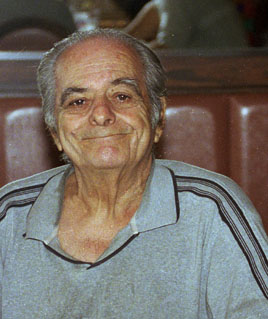An Elegy for Ed Galing in the Form of a Letter to the Deceased
Dear Ed,
“I wake up
to the sadness
of being seventy"
 |
| Ed Galing and Harmonica |
the poet Maia Penfold wrote some years ago,
reflecting how beautiful the world looked from
outer space and how, here, on earth, we dishonored
ourselves, fought senseless wars, persisted in all
forms of cruelty to our fellow men. I can only
imagine what you might add to her reflections
with regards to human follies without end.
At 96, you wrote about having lived too long,
of the loneliness, missing, most of all, your wife
of sixty-seven years, gone now for many years.
You wrote of constant pain, how helpless you felt
in a wheelchair and of the one remaining joy of your
life, writing poems. Those poems you typed , badly,
slowly, on a manual machine and mailed to small
press magazines no one ever heard of but your friends,
mostly fellow poets, who loved you and your work.
I can’t express how much I admired your needing
to write and how that was inextricably linked to your will
to live, when nothing else seemed to matter; the writing
kept the love alive, all those people you cherished
nearby. That last week you wrote letters to old friends
suggesting this was the end. I wrote back, a day late,
right away; after all you never know which one might
be the last one. I’ll cherish my last letter from you though
you’ll never know what I had to say.
love,
alan












